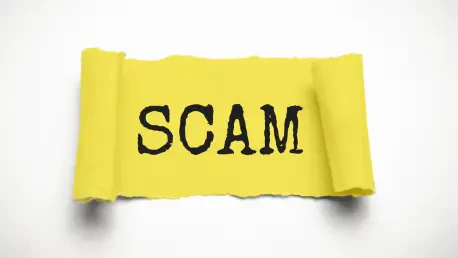In a rapidly evolving global trade environment, maintaining the integrity of postal services is more critical than ever. Today, we delve into a case involving alleged mail fraud and learn from Rohit Laila, a seasoned expert in logistics and technology. His insights shed light on the ramifications of such fraudulent activities and the steps being taken to hold offenders accountable.
Can you explain the role of the U.S. Postal Service in this investigation and why it’s crucial to protect its revenue?
The U.S. Postal Service plays a fundamental role in mail and package delivery across the country and even internationally. Protecting its revenue is crucial because it supports a vast infrastructure that serves the nation. When entities commit fraud, it not only undermines this infrastructure but also places an unnecessary financial burden on taxpayers, who may end up covering the losses.
Who are the main parties involved in this case, and what specific allegations have been made against them?
The main parties involved are YDH Express Inc. and YDH Int’l Inc., both managed by Yizhao Hou. They’re accused of engaging in mail fraud by using counterfeit postage labels to ship parcels for clients in China. These allegations highlight a deliberate attempt to cheat the system and avoid legitimate mailing costs, thus defrauding the Postal Service.
How did the logistics companies allegedly commit mail fraud, and what kind of evidence did the investigation uncover?
The companies reportedly committed mail fraud by using fake postage stamps on packages they sent from the U.S. to China. Evidence gathered in the investigation points to a consistent use of counterfeit labels provided in bulk by Chinese merchants. This suggests a systematic operation rather than isolated incidents.
What measures are being taken to stop YDH Express Inc. and YDH Int’l Inc. from continuing their activities?
To halt their operations, the authorities have obtained a temporary restraining order against YDH Express Inc. and YDH Int’l Inc. This legal action prevents them from using the U.S. Postal Service for further shipments, aiming to stop any ongoing fraudulent activities immediately.
What financial losses has the U.S. Postal Service incurred due to this alleged fraud?
Though exact figures may not be immediately available, the financial losses are assumed to be significant given the volume of parcels shipped with counterfeit labels. These losses not only reflect unpaid postage fees but also additional operational costs incurred by the USPS in addressing and investigating such fraudulent schemes.
Could you explain the temporary restraining order issued by Judge Natasha Merle and its significance in this case?
The restraining order from Judge Natasha Merle is crucial because it provides immediate legal backing to stop YDH’s activities. It serves as a preemptive measure to protect USPS from further losses and preserve the integrity of the postal system while more permanent legal solutions are pursued.
What role did the U.S. Postal Inspection Service and U.S. Customs and Border Protection play in this investigation?
The U.S. Postal Inspection Service and U.S. Customs and Border Protection were integral, providing the investigative backbone to the case. They likely gathered evidence, conducted surveillance, and collaborated with prosecutors to present a solid case showing the scope and impact of the fraud.
How does using counterfeit postal labels violate the False Claims Act, and what potential damages and penalties could the offenders face?
Using counterfeit postal labels is a direct violation of the False Claims Act because it constitutes a fraudulent claim against the government. Violators could face treble damages, which is three times the government’s losses, plus additional penalties for each fraudulent act.
What are the intended outcomes of the complaint filed by federal prosecutors, and how does it seek to hold the defendants accountable?
The complaint aims to halt fraudulent activities and recoup financial losses through damages and penalties. By doing so, it not only seeks justice in this case but also sets a deterrent precedent for any future misconduct involving the misuse of postal services.
How prevalent is mail fraud using counterfeit postage in the U.S., and what steps are being taken to prevent similar instances in the future?
Mail fraud involving counterfeit postage is a recognized issue but varies in scale. To prevent such occurrences, enhanced monitoring, stricter regulation, and better technology for stamp verification are critical. Additionally, international cooperation with partner countries could help tackle the global dimension of such fraud.
Can you discuss the broader impacts of mail fraud on international shipping and trade relations, particularly between the U.S. and China?
Fraudulent activities can strain trade relations, especially when they involve systemic issues like counterfeit postage. Such actions could lead to tighter regulations and increased scrutiny, potentially impacting legitimate trade flows. It’s essential for both countries to work together to mitigate these challenges to maintain healthy economic ties.
What are some potential policy changes or regulations that could be considered to prevent the misuse of the U.S. Postal Service in similar cases?
Policymakers might consider implementing more robust verification systems for postage, greater penalties for fraud, and more transparency in mail logistics. Additionally, fostering international agreements that allow for better coordination on postal integrity could be key in addressing cross-border challenges effectively.
Do you have any advice for our readers?
Stay informed and vigilant. Understand the impact of these activities on everyday services and advocate for transparency and accountability in both public and private sectors. Recognizing the importance of each piece of mail in our vast network is essential for maintaining trust in these crucial systems.









